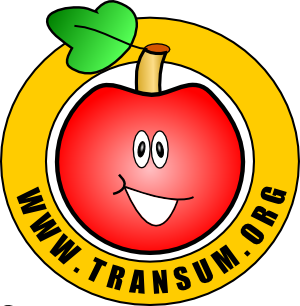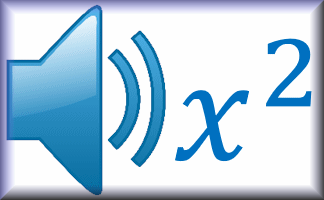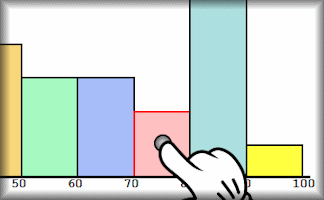Daily Maths Activities

Start each day with a fun maths activity:
- Warm-up exercises
- Revision of basic concepts
- Engaging puzzles and quizzes
10 Tips for Supporting
Foster a growth mindset
Encourage a positive attitude towards Maths and the belief that one's abilities and intelligence can be developed and improved through effort, dedication, and learning.
Provide a quiet study space
Provide a quiet, comfortable space for studying, doing homework and maybe some fun, recreational Maths
Ensure materials are available
Make sure your child has the necessary materials, such as a calculator, textbooks, a protractor, a selection of pens and pencils and a ruler.
Establish a routine
Set aside time for Maths practice and homework, and help them establish a routine.
Stay involved with their education
Stay involved and informed about your child's Maths education by communicating with their teachers.
Use real-life examples
Use real-life examples to help your child understand mathematical concepts.
Encourage questions
Encourage your child to ask questions and seek help when they don't understand something.
Show the relevance of maths
Help your child see the relevance of Maths in their everyday life.
Provide extra resources
Provide extra practice and resources, such as online tutoring or additional textbooks. You could start by subscribing to Transum Mathematics to gain access to all of the solutions.
Celebrate their achievements
Celebrate your child's successes and achievements in Maths, no matter how small they may be.
Helpful Resources

Discover our range of free resources designed to support your child's mathematical learning:
- Self-marking exercises
- Puzzles and games
- Investigations
- Videos
- Worked Solutions
- Jokes and Riddles
- Starters
- Curriculum Checklists
- Schemes of Learning
- Revision Tips
Create an Account
As a parent you can sign up for a 12 month subscription to Transum and use the resources to better support your child.
Sign Up
Membership includes:
- Answers to exercises
- Exam question worked solutions
- No adverts
- Monthly email newsletter
- Worksheets
- Members-only resources
- Award parent trophies
Search Transum
Type just one word into the search box below to see what Transum has to offer:
🔍
Supported Subscription
This is for a learner who would like more support while working through the exercises, investigations and puzzles.
Sign Up
Support from Transum:
- One-to-one meetings on Zoom
- Help with the Transum resources
- Exam question worked solutions
- No adverts
- Monthly email newsletter
- Worksheets
- Parents could subscribe their child
Advertisment:
School Holiday Activities

Here is my collection of Maths activities to do at home during the holidays.
Holiday MathsFun Maths

It is a well worn and time honoured phrase that 'Maths is Fun'. When it is perceived by children as being fun their progress improves. We believe that Mathematics is enjoyable in its own right but have also created a number of activities that might enhance the fun!
Fun MathsThe Basics
In a nutshell, it is probably fair to say, that the biggest obstacle to children learning more advanced concepts is a shaky grasp of the basics. You would be surprised the number of students who are inefficient at factorising algebraic expressions because they don't have a good enough knowledge of the multiplication tables. How can we expect students to apply geometrical theorems when they have forgotten the names and properties of basic shapes? Students would be much better realising if their answers to exam questions were reasonable if they lack the skills of estimation and don't have a common sense familiarity with common units of length, weight and capacity as modeled by common household objects.
Regular Exercise
We all know that regular exercise is required to maintain a healthy body. In a similar way the brain needs regular practice doing Mathematics in order to do well in the subject. There are hundreds of online exercises here on the Transum website ranging from simple arithmetic to calculus. Parents can work on these exercises with their children knowing that they are self-marking so you can get immediate feedback as to whether the answer is correct or not. You may also like to have the peace of mind the answers will provide. These are available to parents who create an account and sign in to Transum Mathematics.
Being Systematic
Much of Mathematics revolves around being well organised, logical and systematic. Yes, there is the knowledge of number facts, concepts and theorems that is essential but time should also be devoted to working in a systematic way. For the last thirty years teachers have been placing more emphasis on 'investigations' and a diverse range of problem solving strategies that allow the better understand the underlying principles of Mathematics as well as finding answers using common sense approaches.
Parents can support children develop order and structure in many aspects of home life but could also work together with their children on some of our activities that require an organised approach such as Ice Creams, Bus Stop and Logo.
Multiplication Tables
Yes, even though it is 2026 and technology is everywhere, children still need to know their times tables. So many of them leave Primary school with inadequate abilities and this problem is not addressed once the business of Secondary school takes over. Whatever their age, children need to learn well and practice the times tables from two to twelve to support the other areas of Mathematics (and life!) that they will learn about.
Transum has a ‘Learn a new times table in only 5 days’ page which links to activities we know work well in developing the skills, knowledge and understanding. As a parent you can ensure that the five day plan is followed and reinforce the child’s learning in this important area.
Geometry
The topic of geometry may have changed a little since you were at school but the basics are still there. Rather than there being a huge emphasis on learning theorems pupils nowadays approach this topic from a number of related themes such as Angles, Bearings, Construction, Mensuration, Shape, Tessellations and Transformations.
Have a look at our Geometry links and you could try some activities yourself before working on them with your child.
📐
Advertisment:
Algebra
Pupils begin their study of Algebra by investigating Number Patterns. Later they construct and express in symbolic form and use simple formulae involving one or many operations. They use Brackets, Indices and other constructs to apply algebra to real word problems. This leads to using algebra as an invaluable tool for solving problems, modelling situations and investigating ideas.
If this topic were split into four sub topics they might be:
- Creating and simplifying expressions
- Expanding and factorising expressions
- Substituting and using formulae
- Solving equations and real life problems
Statistics

Statistics is the study of the collection, organisation, analysis, interpretation and presentation of data. It deals with all aspects of data, including the planning of data collection in terms of the design of surveys and experiments. It also includes describing mathematical relationships between variables and presenting these to an audience in a way that best conveys meaning. Often Probability is included in this topic.
Tutors
You may want to consider employing a private tutor for your child. Individual instruction from a tutor can bridge the gap that sometimes exists between classroom teaching and a student's unique learning style. For those students who don’t like school, a great tutor can also find ways to engage them in mathematics and spark an interest in learning that might not have previously existed. They are also beneficial for special needs students, students preparing to take exams, and even students who just need a boost in their confidence.
If you decide that you need a tutor finding the right one can be difficult. The availability often depends on where you live. For example, larger cities tend to have more available tutors than rural areas. Online tutoring services are a one possible solution to the availability problem.
Exam preparation
There is nothing like an exam to focus attention on the learning of Mathematics. At exam time of year both children and parents need a little extra support ensuring that everything goes as well as it can so what can parents do to support their children?
Firstly providing a positive, ‘can do’ attitude is most important. It doesn’t help if the parent says that they hated Maths when they were at school. The resources to help are available now in a way they were not when parents were at school.
Secondly providing a quiet place in the house for the child to revise is crucial, away from the temptations of the television and video games. That being said we also encourage the enjoyment of Mathematics in the family room working on topics through games, puzzles and investigations in preparation for the exam.
General help preparing for exams includes ensuring that the child has the right equipment they need for the exam including a pen (and a spare), pencil (and a spare), the correct type of calculator, a good pair of compasses, ruler, protractor and eraser.
In exams marks are still awarded for the ‘working out’ even if the answer is wrong. A large proportion of children are still not showing their method in a clear, ordered way and this is something parents can help reinforce.
Finally have a look at our Exam Tips and above all don’t panic!
Curriculum
Find resources by curriculum learning objectives or Schmes of Learning.
The links below are for the English Curriculum and the International Baccalaureate Diploma.
Key Stage 2 Key Stage 3 Key Stage 4 Functional Skills A-Level IB Diploma

You could complete a Checklist by going through each learning objective and classify them as easy, OK or help!
Luck Dip

Not sure what to do right now? Click a button below for some ideas:
Year 5 Activities Year 6 Activities Year 7 Activities Year 8 Activities Year 9 Activities Year 10 Activities Year 11 Activities Year 12 Activities Year 13 ActivitiesSummary
Parents are encouraged to use the activities here on Transum Mathematics to support their children in the learning of this fascinating subject.
The resources are arranged conveniently by topic so that you can quickly find what you are looking for. We also have suggestions for using iPads (or other similar devices) and laptops.
To see the answers and to get an advertisement free experience create an account and sign in to Transum Mathematics.
✅



